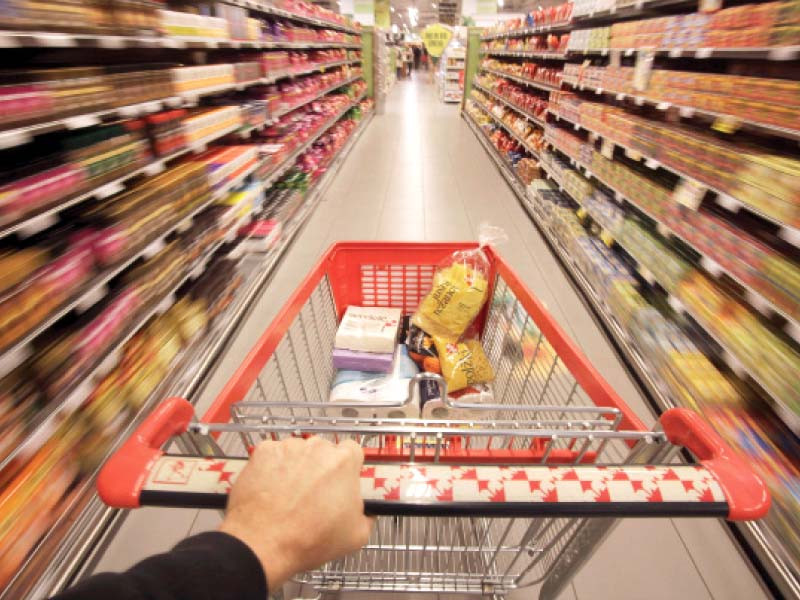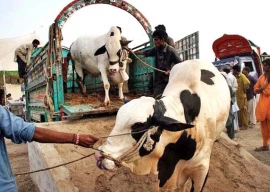
The inflation may inch over 9% due to monetary expansion and a spike in international commodity prices and the current account deficit could remain over half a billion dollar in August, says a new report by the Ministry of Finance.
The monthly economic outlook report for the month of August also predicted around $5.5 billion imports in August too, which have become a key reason behind widening of the current account deficit, again.
Year-on-year inflation is expected to fluctuate around 7.6% - 9.2% in August, according to the report prepared by the economic advisory wing of the finance ministry.
It added that Pakistan’s inflation rate is mainly driven by current and past fiscal and monetary policies, international commodity prices, US dollar exchange rate, seasonal factors and economic agents’ expectations concerning the future developments of these indicators.
Inflation had been recorded at 8.4% in July 2021.
The newly launched three-year roadmap for economic growth outlines an “acceptable level of inflation” as of the key challenges.
For a country like Pakistan an inflation rate of around 7% is acceptable, said Dr Ashfaque Hasan Khan, former adviser Ministry of Finance.
The monetary expansion has also remained a reason behind higher than targeted inflation rate in the country but it has not been publicly discussed in depth.
The finance ministry report stated that during the last fiscal year, money supply witnessed expansion of Rs3.4 trillion, showing a growth of 16.2 % over the preceding year. It added that an increase in international commodity prices can build pressure on domestic inflation as well as on the balance of payments.
It is expected that trade deficit in goods and services could stabilise to approximately $3 billion in August, said the ministry. The current account deficit is expected to remain at manageable levels taking into account the monthly average of remittances flows around $2.5 billion and other secondary and primary income flows.
The finance ministry said that imports of goods and services will be around $6 billion in this month, implying around $5.5 billion imports of goods. As a result, the current account would remain in deficit at moderate monthly levels of around $500 million this month, said the ministry.
The current account posted a deficit of $773 million (or 2.8% of GDP) in July as against a surplus of $583 million last year.
The central bank has predicted up to $9.5 billion current account deficit in this fiscal year as against $13 billion projection by the Ministry of Finance.
The finance ministry said that the current account deficit widened due to growing import volume of energy and non-energy commodities, along with a rising trend in global prices of oil, Covid-19 vaccines, food, and metals.
On one side, global economic recovery, especially in Pakistan’s main trading partners, is a healthy sign for growth of exports and workers remittances. However, rise in international commodities price are becoming downside risk in terms of high imports value and building inflationary pressure for Pakistan, it added.
Read more Inflation slows to 8.4% in July
Cognizant of these risks, the government has already initiated building strategic reserves of essential commodities along with vigilant monitoring of imports, it added.
The report stated that in absence of any major unexpected negative shocks, the economy is smoothly moving towards a balanced and sustainable growth path.
In July 2021, strong year-on-year growth in large scale manufacturing was also expected on the basis of continued cyclical uptrend in the main trading partners and domestic growth momentum, it added.
Although, the LSM showed double digit growth but the quantum index still remains below pre-Covid level.
The revival of economic activities along with accelerated vaccination process, are promising for achieving a strong economic growth. On the other hand, the risks of pandemic upsurge, along with increase in international commodity prices still exist. In this regard, the government’s measures to build strategic reserves, especially related to food, along with measures to enhance exports will definitely mitigate the associated risks.
Published in The Express Tribune, August 29th, 2021.
Like Business on Facebook, follow @TribuneBiz on Twitter to stay informed and join in the conversation.

1718870162-0/BeFunky-collage-(60)1718870162-0-405x300.webp)
1730504285-0/Martha-(1)1730504285-0-165x106.webp)





1719053250-0/BeFunky-collage-(5)1719053250-0-270x192.webp)











COMMENTS (2)
Comments are moderated and generally will be posted if they are on-topic and not abusive.
For more information, please see our Comments FAQ